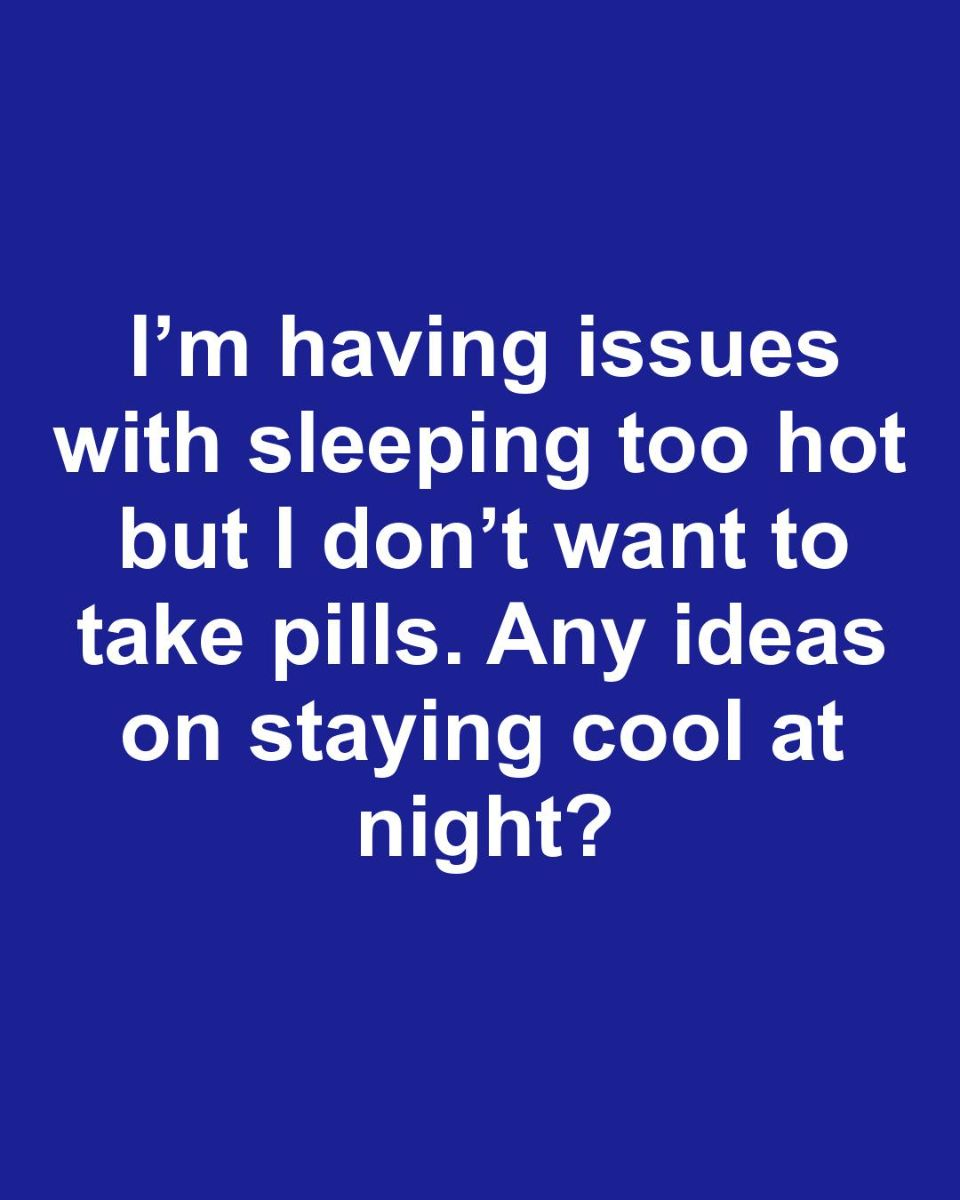ADVERTISEMENT

Good ideas
The ideal room temperature for sleep is generally between 60-67 degrees Fahrenheit (15-19 degrees Celsius). Use a programmable thermostat to maintain a consistent temperature throughout the night. If possible, open windows in the evening to let in cooler air or use blackout curtains to block out heat during the day.
The Benefits of Fans and Air Circulation
Fans are an effective and affordable way to enhance air circulation in your bedroom. Ceiling fans or portable fans can help distribute cool air evenly and create a gentle breeze, which can be particularly soothing on warm nights. Consider placing a bowl of ice in front of a fan for an extra cooling effect.
Exploring Natural Cooling Techniques
There are several natural methods you can try to cool down before bed. Taking a lukewarm shower can help lower your body temperature, while using a damp washcloth on your forehead or wrists can provide instant relief. You can also try sleeping with a cool gel pad or ice pack under your pillow.
Hydration and Its Impact on Body Temperature
Staying hydrated is essential for regulating body temperature. Drink plenty of water throughout the day, but be mindful of your intake close to bedtime to avoid disruptive trips to the bathroom. Dehydration can lead to increased body heat, so maintaining proper hydration is key.
The Influence of Diet on Sleep Temperature
Certain foods and beverages can affect your body temperature. Spicy foods, caffeine, and alcohol can raise your internal temperature, so it’s best to avoid them in the hours leading up to bedtime. Instead, opt for lighter meals and snacks that are easier to digest.
Relaxation Techniques to Reduce Body Heat
Stress and anxiety can contribute to feeling overheated. Incorporating relaxation techniques such as deep breathing, meditation, or gentle yoga into your bedtime routine can help calm your mind and body, making it easier to fall asleep and stay cool.
Technology Solutions for a Cooler Night’s Sleep
There are various technological solutions available to help you stay cool at night. Smart mattresses and sleep systems can monitor and adjust your sleep environment automatically. Additionally, cooling pillows and mattress toppers with built-in fans or cooling gel can provide targeted relief.
When to Seek Professional Advice
If you’ve tried multiple strategies and still struggle with sleeping too hot, it may be time to consult a healthcare professional. Persistent issues could be a sign of an underlying medical condition, such as hyperthyroidism or menopause, that requires medical attention.
Conclusion: Achieving a Cool and Restful Night’s Sleep
Sleeping cool is essential for a restful and rejuvenating night’s sleep. By making a few adjustments to your sleep environment, bedding, and lifestyle, you can significantly improve your comfort and sleep quality. Experiment with different strategies to find what works best for you, and enjoy the benefits of a cooler, more peaceful night’s rest.
Resources
RemedyDaily.com does not give medical advice, diagnosis, or treatment.